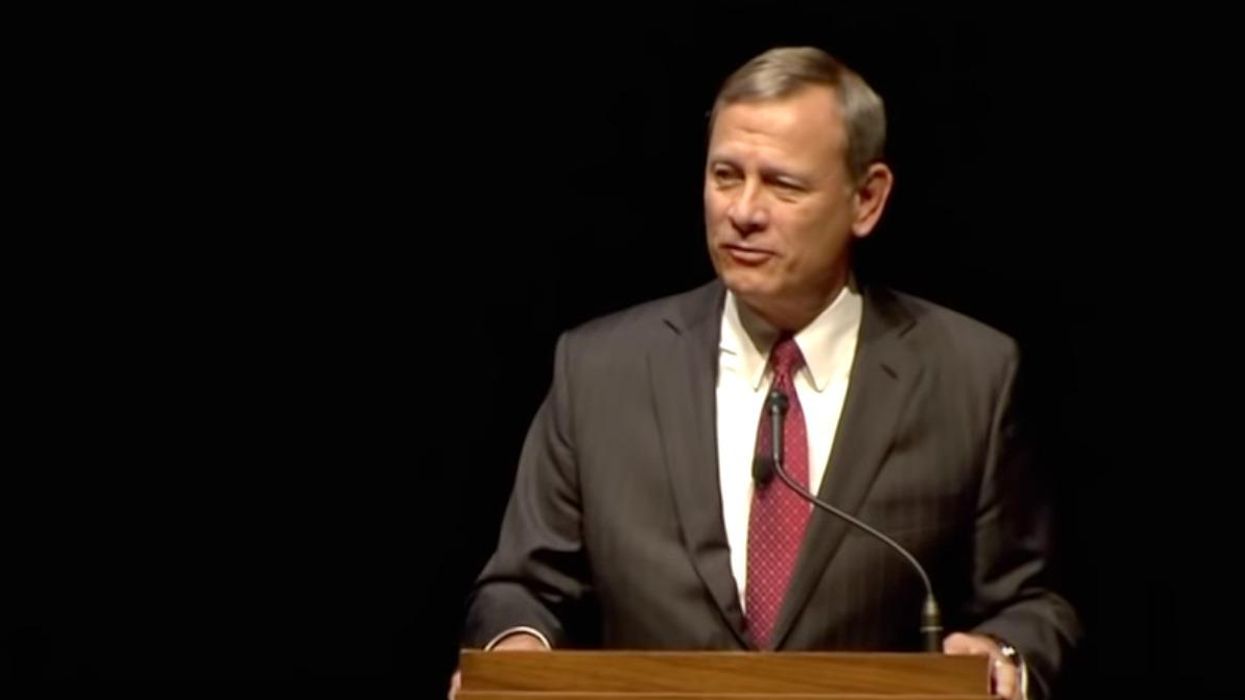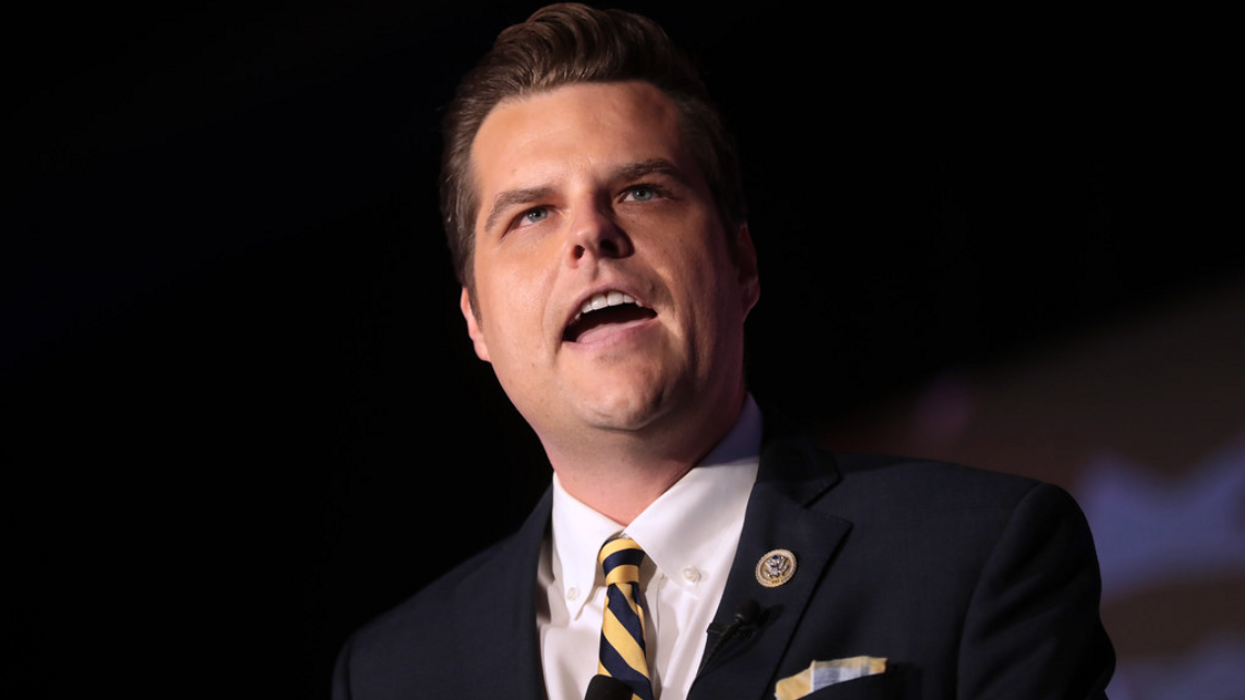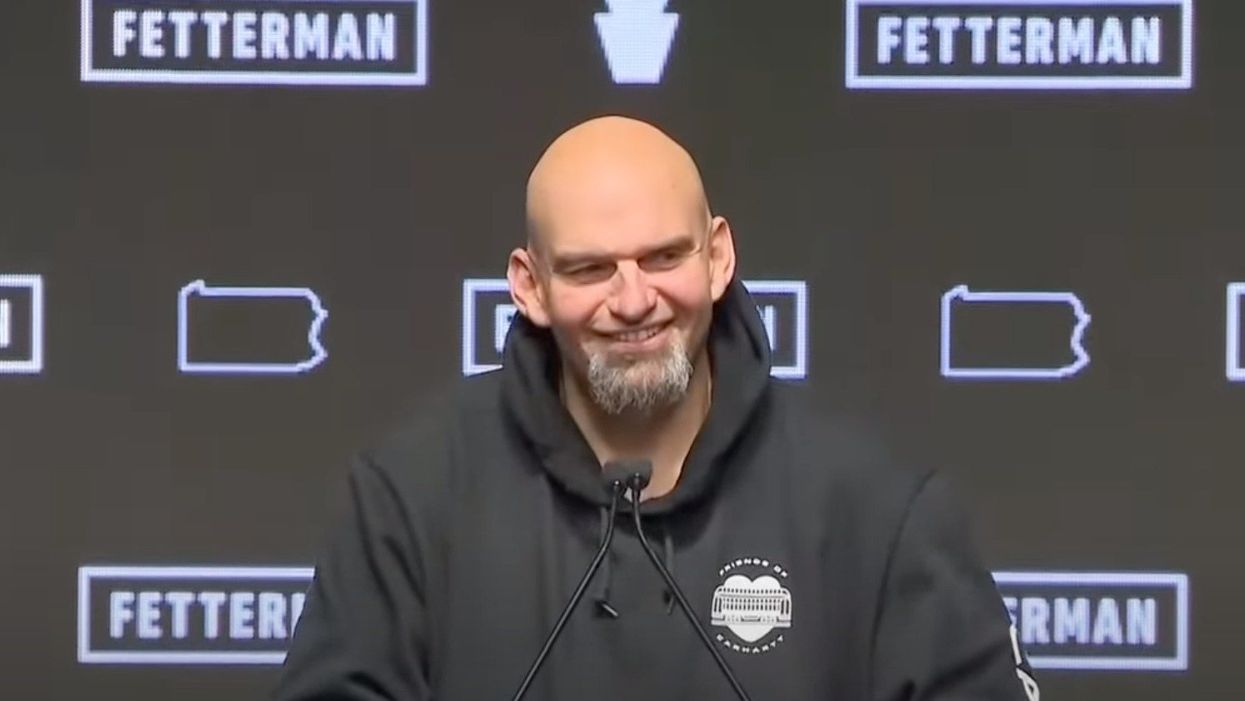Is Chief Justice Ready To Confront Trump Regime's Lawlessness?
"For more than two centuries," Chief Justice John Roberts wrote Tuesday in an extraordinary statement, "it has been established that impeachment is not an appropriate response to disagreement concerning a judicial decision. The normal appellate review process exists for that purpose."
"Not appropriate," huh? That's really going to scare them.
The chief justice's statement, which might have been enough to give a former president pause, is not likely to make much of a difference with this crowd. It comes in the face of what appears to be open defiance of an order by the chief judge of the District of Columbia District Court, James Boasberg, to return planes carrying migrants alleged to be members of a Venezuelan gang to the United States while he considered whether their removal was lawful. The planes did not turn around.
Rep. Brandon Gill, R-Texas, said on social media on Tuesday that he had filed articles of impeachment against Boasberg, asserting that the judge's rulings amounted to "high crimes and misdemeanors."
This followed President Donald Trump taking to social media himself to condemn the Judge as a "Radical Left Lunatic of a Judge ... This judge, like many of the Crooked Judges' I am forced to appear before, should be IMPEACHED!!!
Boasberg is a highly respected federal judge. He is the definition of a bipartisan appointee. He has been on the bench for 23 years, having first been appointed by President George W. Bush in 2002 to the D.C. Superior Court, and to the U.S. District Court by President Barack Obama.
He is not about to be impeached: Only eight judges in American history have been impeached, none of them for making a decision the administration doesn't agree with. While it takes only a majority of the House of Representatives to pass articles of impeachment, it takes two-thirds of the Senate — which Republicans don't have — to convict.
The real question is whether his — and other federal judges' orders — will be followed by an administration that seems determined to bend the law in its direction and defy the rule of law, and what John Roberts is going to do about it.
"We're not stopping," border czar Tom Homan told Fox News on Monday. "I don't care what the judges think — I don't care what the left thinks. We're coming."
The administration is still playing games in court, arguing that the planes took off before the judge's written (as opposed to verbal) order was handed down and that the judge lacked jurisdiction to order them to turn around once they were in international airspace. That might avert a constitutional crisis this time around, but it will not avert the coming constitutional crisis.
The chief justice is going to have to do more than comment about what is "not appropriate." The rhetoric that might have moved former presidents is not going to move Donald Trump and Tom Homan. Roberts may think his warning, and that of other federal judges in recent weeks, will make a difference, but there is simply no evidence that Trump is listening. Like Homan, he keeps on coming.
Roberts has no one to blame but himself for affording broad immunity to the president to disobey the law. The chickens are coming home to roost. Federal district judges need to know the Supreme Court will stand behind them and their rulings. It is one thing to defy and demonize a single federal judge, as they are trying to do with Boasberg. It is another to defy the Supreme Court. That is where this is headed. John Roberts had best be ready. Our democracy is depending on him.
Reprinted with permission from Creators.












